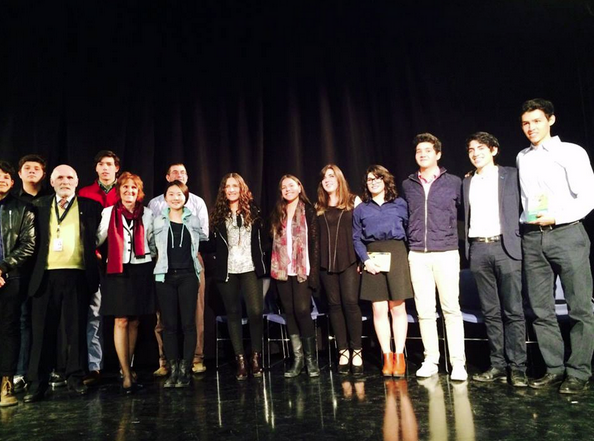![The finalists pose for a picture after the contest. [Romina Zesati]](http://www.jstudentboard.com/reporter/wp-content/uploads/2015/03/Screen-Shot-2015-03-12-at-6.07.47-PM-300x223.png)
[Romina Zesati]
This contest sparked the students’ interests in poetry. Many of them found inspiration from the poems they discovered and developed new skills in communication, which is one of the ASFG’s main goals for students.
Poetry has been one of the oldest forms of self expression, going back to at least the 11th century B.C.E. Throughout history, writers have continued to manipulate language and develop unique forms in order to translate their feelings onto a piece of paper.
For most of the students, the best part of the competition was that many of them found poems they could relate to, further prodding their interest in poetry. With this contest, they found that their interest come alive, and they found themselves enjoying the excitement and work that comes with this nerve-wracking competition.
“Poetry is a simpler way to express life events, points of view, [and] feelings in general in so many creative and clever ways. Knowing more about poetry enhances our knowledge about literature and reinforces our memorizing skills,” stated Romina Zesati, second place winner in the POL contest.
This competition is not only about growing as an effective communicator, but also about self growth. Many students found a passion for poetry through this experience, and they found out a creative and beautiful way of expressing their thoughts.
“For me, poetry is what the heart tries to say that the mind doesn’t allow. It’s a strong and brief way to describe a person, a feeling, an opinion, or a small moment in life,” said Zesati during an interview with JSR.
“There’s art everywhere, and having even the smallest sense of emotion and sensitivity may turn our days a little better,” Zesati concluded.

